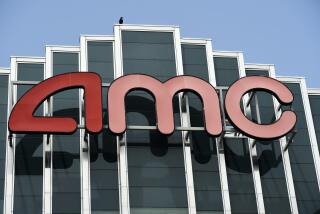Offer for AMI Is Trimmed by $230 Million : Beverly Hills Firm Has No Immediate Response
- Share via
The investment group that agreed in July to acquire American Medical International has changed its $1.9-billion offer, submitting a new cash bid of $1.67 billion for the hospital management firm.
Beverly Hills-based AMI has not yet responded to the new offer, which was made Wednesday and announced Thursday. The investment group--financed by Chicago’s wealthy Pritzker family and the investment firm of First Boston--said Thursday that it would not be able to arrange financing for the offer before it expired Oct. 11 and thus would not purchase any AMI shares at the original price.
One person at First Boston said the investment group, called IMA Acquisition Corp., amended its bid because a congressional tax bill could make the proposed purchase more costly.
Exemption Sought
The group originally planned to finance $250 million of the deal through payment-in-kind bonds, which pay accumulated interest only when they mature in five years. The group planned to take tax deductions on those interest payments annually, an allowable practice under current tax law. However, a congressional bill--submitted after the partnership formulated the July 7 acquisition plan--would eliminate the annual tax deduction on payment-in-kind bonds, boosting the cost of the buyout by millions.
The House of Representatives recently passed the bill, but the Senate has yet to act. IMA Acquisition had been seeking an exemption from the bill’s provisions.
By submitting a lower bid, the group has given AMI executives a new opportunity to put the hospital chain on the auction block, said Kenneth Abramowitz, an analyst at Sanford C. Bernstein & Co. in New York.
“If no one offers more money, it (the amended bid) is a fair offer,” Abramowitz said.
Abramowitz said the partnership is citing uncertainty about tax law to gain negotiating leverage over AMI. “They used the IRS issue as an excuse,” he said. “They reduced the price because they thought they could get away with it.”
The per-share price under the July 6 agreement was $26.50 in cash and about $1.50 in new AMI stock. Under the new proposal, the group has offered about $23 a share in cash plus new AMI stock that analysts value at $1.50 to $2 per share.
On the New York Stock Exchange, AMI shares closed Thursday at $23.375, up 37.5 cents, in very active trading.
Change in Junk Bond Market
A number of analysts said the new bid is more a reflection of the investment group’s concern about the floundering junk bond market than worry over tax law. First Boston was to finance part of the deal with about $700 million in junk bonds. A number of analysts said IMA Acquisition would have to pay millions more in interest to attract bond buyers under current market conditions.
“The conditions in the junk bond market have changed dramatically since the original agreement,” said John Hindelong, an analyst at Donaldson, Lufkin & Jenrette Securities Corp. in New York. “The change is reflected in this offer. I think (AMI) shareholders, given the changes in the junk bond market, will be pleased with the offer.”
Another analyst, Seth Shaw of Prudential-Bache Securities in New York, predicted that AMI would accept the new bid.
“I still think it’s a good offer for shareholders,” he said. “Anything over $18 is good.”
However, Rae Alperstein, an analyst at Bateman Eichler, Hill Richards Inc. in Los Angeles, predicted that AMI would try for a better deal. Alperstein said IMA assumed that it would be adversely affected by congressional action and junk bond market conditions when it devised the new offer.
“They made the proposal based on a worse-case scenario,” Alperstein said. “The market could improve, and the tax bill hasn’t passed. . . . They will work it out. If they don’t, there are other buyers in the wings.”
More to Read
Inside the business of entertainment
The Wide Shot brings you news, analysis and insights on everything from streaming wars to production — and what it all means for the future.
You may occasionally receive promotional content from the Los Angeles Times.










